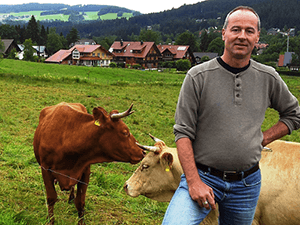
Blog |
Nitrate in Groundwater of California Agricultural Regions: Assessment & Solution
California’s Central Valley and coastal valleys are among the most productive and most diverse agricultural regions in the world. While environmental impacts of such intensive agricultural production have been scrutinized and sometimes regulated for several decades, groundwater pollution from nitrate, albeit widespread, is only now becoming the focus of water quality regulatory agencies. We have implemented extensive modeling of the fate of nitrogen in soils and aquifers of California’s agricultural regions. Nitrate source characterization elucidates the dominant role of agriculture in nitrate pollution. An evaluation of source reduction practices and assessment of groundwater quality status and future nitrate fate using novel modeling systems shows that water quality improvements can only be achieved over decades. In the short-term, our work outlines alternative clean drinking water options for impacted communities
About the Speaker
Thomas Harter has B.S. in hydrology from the Universities of Freiburg, Germany and a M.S. in hydrology from the University of Stuttgart, Germany. He received his Ph.D. in hydrology (with emphasis on subsurface hydrology) at the University of Arizona. In 1995, he joined the faculty at the Department of Land, Air, and Water Resources, University of California, Davis. His research focuses on nonpoint-source pollution of groundwater, on groundwater resources evaluation under uncertainty, on groundwater modeling, and on contaminant transport. Dr. Harter’s research group has done extensive modeling, laboratory, and field work to evaluate the impacts of agriculture and human activity on groundwater flow and contaminant transport in complex aquifer and soil systems. In 2007, Dr. Harter was appointed Robert M. Hagan Endowed Chair in Water Management and Policy. Also in 2008, Dr. Harter’s research and extension program received the Kevin J. Neese Award in recognition of its efforts to engage scientists, regulators, farm advisors, dairy industry representatives, and dairy farmers to better understand the effects of dairy operations on water quality.
